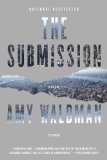Summary | Excerpt | Reading Guide | Reviews | Beyond the Book | Readalikes | Genres & Themes | Author Bio

A Novel
by Amy Waldman
Ariana was waiting for more from Paul. "You're wasting your time on me," he said brusquely. The winner needed ten of thirteen votes; Paul had made clear he would abandon neutrality only if a finalist was one short. "If I were you, I'd go rescue Maria from Claire."
Claire had seen Maria heading outside, cigarette in hand, and hurried after her. She had been pleading - no other word for it - with the critic, telling him, "Just because we're memorializing the dead doesn't mean we need to create a dead place," watching him roll his head as if his neck hurt from looking up at her. But she also had been scavenging her memory for tidbits from law school: the science of juries. The Asch experiments, what did Asch show? How easily people were influenced by other people's perceptions. Conformity. Group polarization. Normative pressures. Reputational cascades: how the desire for social approval influences the way people think and act. Which meant Claire's best chance was to get jurors alone. Maria was a public art curator who had made her mark placing large-scale artworks, including one of Ariana's, around Manhattan. This made her an unlikely defector, but Claire had to try.
"Got an extra?" she asked.
Maria handed her a cigarette. "I wouldn't have pegged you as a smoker."
"Only occasionally," Claire lied. As in never.
They were standing on the veranda, the lawn spread before them, its majestic trees mere smudges in the dark, the lights of the bridges and boroughs like proximate constellations. Maria ashed complacently over the railing onto the lawn, and although it struck Claire as somehow disrespectful, she did the same.
"A ruined garden within the walls - that I could get behind," Maria said.
"Excuse me?"
"It would be so powerful as a work of art, would answer any worries about erasing the hard memories. We have to think of history here, the long view, a symbolism that will speak to people a hundred years from now. Great art transcends its time."
"A ruined garden has no hope and that's unacceptable," Claire said, unable to help her sharpness. "You all keep talking about the long view, but the long view includes us. My children, my grandchildren, people with a direct connection to this attack are going to be around for the next hundred years, and maybe that's a blip when you look back at the Venus of Willendorf, but it certainly seems a long time now. So I don't see why our interests should count any less. You know, the other night I dreamed about that black pool around the Void, that my husband's hand was reaching up from the water to pull me down into it. That's the effect the Void has. So you can go there and congratulate yourself on what a brilliant artistic statement you made, but I don't think family members will be lining up to visit."
Her anger was no less genuine for her having learned, months back, its power. On a wintry afternoon, as she and the other widows left a meeting with the director of the government's compensation fund, a reporter in the waiting press pack had shouted, "How do you answer Americans who say they're tired of your sense of entitlement, that you're being greedy?" Claire had gripped her purse to keep her hands from shaking, but she didn't bother to mute the tremble in her voice. "Entitlement? Was that the word you used?" The reporter shrank back. "Was I entitled to lose my husband? Was I entitled to have to explain to my children why they will never know their father, to have to raise them alone? Am I entitled to live knowing the suffering my husband endured? This isn't about greed. Do your homework: I don't need a penny of this compensation and don't plan to keep it. This isn't about money. It's about justice, accountability. And yes, I am entitled to that."
She claimed, later, to have been unaware the television cameras were rolling, but they captured every word. The clip of the death-pale blonde in the black coat was replayed so often that for days she couldn't turn on the television without seeing herself. Letters of support poured in, and Claire found herself a star widow. She hadn't meant to make a political statement, in truth had been offended by the notion that she was grubbing for money and was seeking to set herself apart from those who were. Instead she emerged as their champion, the Secretary of Sorrow Services. Her leadership, she knew, was the reason the governor had picked her for the jury.
Excerpted from The Submission by Amy Waldman. Copyright © 2011 by Amy Waldman. Excerpted by permission of Farrar, Straus & Giroux. All rights reserved. No part of this excerpt may be reproduced or reprinted without permission in writing from the publisher.
Your guide toexceptional books
BookBrowse seeks out and recommends the best in contemporary fiction and nonfiction—books that not only engage and entertain but also deepen our understanding of ourselves and the world around us.